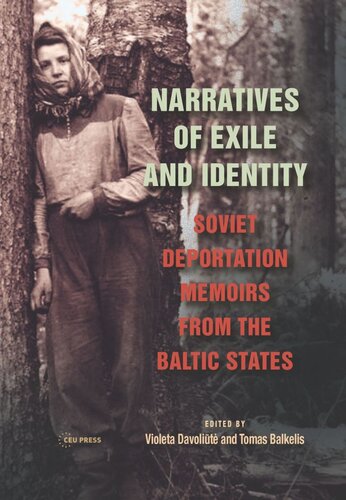

Most ebook files are in PDF format, so you can easily read them using various software such as Foxit Reader or directly on the Google Chrome browser.
Some ebook files are released by publishers in other formats such as .awz, .mobi, .epub, .fb2, etc. You may need to install specific software to read these formats on mobile/PC, such as Calibre.
Please read the tutorial at this link: https://ebookbell.com/faq
We offer FREE conversion to the popular formats you request; however, this may take some time. Therefore, right after payment, please email us, and we will try to provide the service as quickly as possible.
For some exceptional file formats or broken links (if any), please refrain from opening any disputes. Instead, email us first, and we will try to assist within a maximum of 6 hours.
EbookBell Team

0.0
0 reviewsIn an innovative effort to situate Baltic testimonies to the Gulag in the broader international context of research on displacement and memory, scholars from the Baltic States, Western Europe, Canada, and the United States seek answers to the following questions: Do different groups of deportees experience deportation differently? How do the accounts of women, children and men differ in their representation? Do various ethnic groups remember the past differently: how do they use historical and cultural paradigms to structure their experience in unique ways? The scholars researched the archives, read testimonies, interviewed former deportees, and examined artifacts of memory produced since the late 1980s, applying crossdisciplinary approaches used at the study of the Holocaust testimonies; the testimonies of women have received a particular emphasis. The essays in the book also examine the issues of transmittance, commemoration and public uses of the memory of deportations in contemporary social, cultural and political contexts of Baltic societies, including the reflection of Gulag legacy in literature, the cinema and museums.